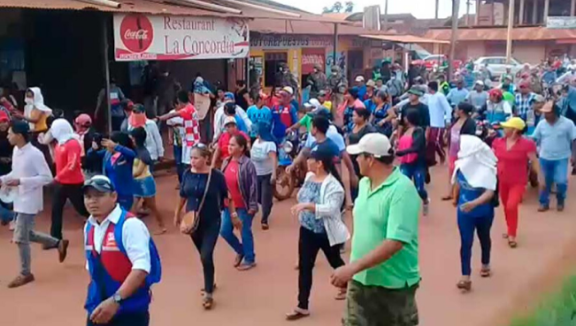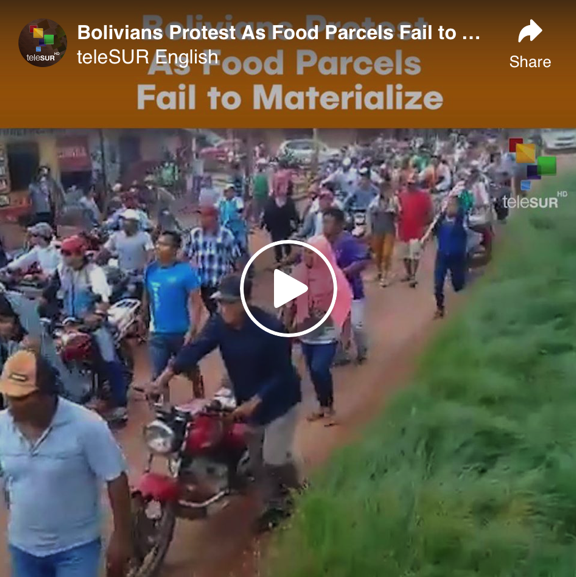
(above) Protests in the Riberalta region, Beni, Bolivia. | Photo: Office of the Ombudsman of the Plurinational State of Bolivia.
Bolivians Unable to Quarantine, Protest All Over the Country
April 4, 2020 - Original article: telesurenglish.net
In recent weeks, protests have been seen in different parts of Bolivia, such as in the city of Riberalta, Beni, where people came out with banners saying, "The Government is locking us up, hunger is going to kill us!."
While the quarantine in Bolivia was extended until April 15, several poor neighborhoods across the country continue to protest the de-facto government's inability to meet the demands of the most vulnerable regions.
RELATED:
Bolivia: People Break Quarantine to Protest for Lack of Food
On Saturday, videos of protests –in the middle of the quarantine– that took place in the Plan 3000 neighborhood in the city of Santa Cruz, circulated through social networks where residents demanded effective government policies that respond to the basic needs of the poorest people in the country.
Like many other regions in Latin America, in Bolivia, most of the population depends on the informal economy. Families survive on small businesses such as selling street food, informal jobs, or care jobs. So these families usually lack savings and face severe difficulties in meeting their basic needs or simply depend on daily work.
In recent weeks, protests have been seen in different parts of the country, such as in the city of Riberalta, Beni, where people came out with banners saying, "The Government is locking us up, hunger is going to kill us !." People wonder if COVID-19 or the government's response could kill them sooner.
For its part, the de-facto government led by Jeanine Añez said that it would help with $60 and $70 for those over 60, pregnant women, the disabled, and children who are in primary school. However, this measure would leave out many low-income families in the country.
Click here or on photo to see video.
Meanwhile, a poll by the company Captura Consulting found that 57% do not believe that their savings will be sufficient to cover the entire quarantine, even if it had not been prolonged. This survey also found that, unlike wealthier countries, only Bolivians with a high socio-economic level have been able to continue to produce through teleworking.